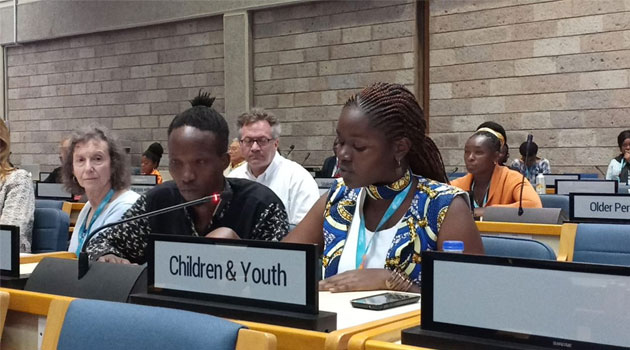
The plenary will also adopt resolutions made during the five-day event that sought to mobilise commitments for the realisation of Sustainable Development Goal 11 on sustainable cities and communities/CFM NEWS
NAIROBI, Kenya, May 31 – UN-Habitat reform is expected to feature among seven resolutions set for adoption at the end of a five-day inaugural Assembly on Friday.
The Assembly’s closing plenary session is slated for 3pm with the adoption of a sessional report having been earmarked as a key agenda item.
The plenary will also adopt resolutions made during the five-day event that sought to mobilise commitments for the realisation of Sustainable Development Goal 11 on sustainable cities and communities.
Also on the agenda of the final plenary session is the selection of a date and provisional agenda for the second session of the UN-Habitat Assembly set to be held in 2023.
The agency’s Executive Director, Maimunah Sharif, told a press conference Friday afternoon the UN-Habitat was keen to secure the commitment and participation of governments across the globe to ensure the success of its 2020-2025 Strategic Plan whose implementation is projected to cost about $1.9 billion.
“At the moment we’re undergoing restructuring to look into our rules and procedures and see where the loopholes are so that we can come up with an agile leadership in terms of tackling urbanization challenges,” she said.
Part of the reforms include the constitution of an Executive Board which was elected on Wednesday.
Kenya was among nine African countries elected to the 36-member board, others being Ethiopia, Egypt, Nigeria, Democratic Republic of Congo, Cameroon, Morocco, Malawi and Angola.
Other countries elected to the board are the US, China, Japan, Canada, France, India, Sri Lanka, Republic of Korea, Iran, Indonesia, Pakistan, Poland, the Russian Federation, Serbia, Romania, Argentina, Brazil, Chile, Costa Rica, Mexico, Uruguay, Sweden, Turkey, Germany, Spain, and Portugal.
Lori Dando from the United States was elected chairperson of the board following its first meeting on Thursday during which the board adopted its agenda and rules of procedure.
During the news conference on Friday UN-Habitat Assembly President, Martha Delgado, said the ongoing reform of the UN-Habitat will be critical to the realization of the New Urban Agenda, a 2016 blueprint towards sustainable cities adopted in Quito in Ecuador.
“We’re walking on capacity building, gender equity, guidelines for a UN system on safer cities and also regarding the linkage between rural and urban centres. We’ll also have, as part of the resolutions, arrangements for a transition to a new governance structure for the UN-Habitat,” Delgado remarked.
“We are also preparing a Ministerial Declaration and also approve the UN-Habitat Strategic Plan,” she added.
Delegates from over 100 UN member states have been meeting at the UN complex in Gigiri to review the implementation of the New Urban Agenda.
UN-Habitat’s 2020-2025 strategic plan seeks to fast-track implementation of the New Urban Agenda with an aim to curtail a projected rapid growth of informal settlements in urban areas where available data indicates two thirds of the world’s populations will have migrated to by 2050.
Projections show about 70 per cent of urban population will be living in informal settlements by 2050.
Commitments totaling $152 million were secured on Wednesday with thirty-eight governments and 10 local authorities undertaking to fund initiatives that would foster sustainable urbanisation.
Speaking at the pledging and commitment session, Sharif said the agency was committed to helping countries eliminated spatial inequality and poverty adding no one and no place should be left behind.
“Cities are the physical manifestation of history and culture, and incubators of innovation, industry, technology, entrepreneurship and creativity,” she said.
The UN-Habitat’s Strategic Plan for 2020-2025 is centered on four broad areas namely; reducing spatial inequality, promoting shared prosperity, strengthening climate action, and enhancing urban crisis prevention.
Kenya, Egypt, South Africa, Nigeria, Gambia, Morocco, Senegal and Malawi are among governments that committed to finance the plan which seeks to upscale the realization of Sustainable Development Goal 11 on sustainable cities and community.










































